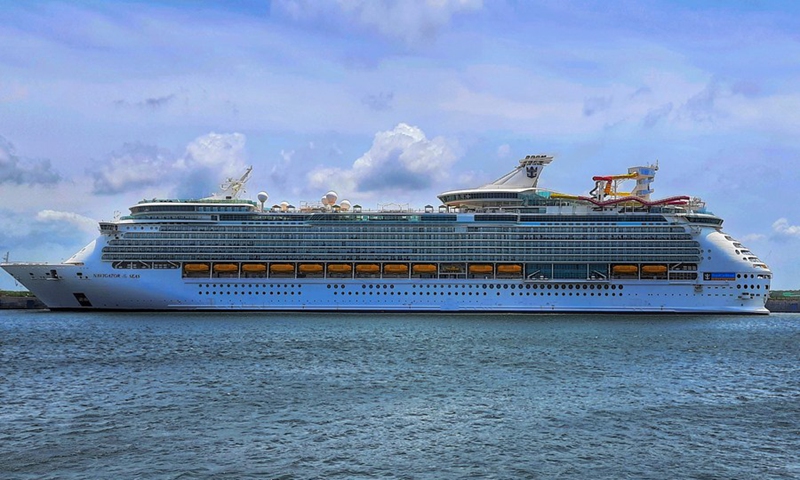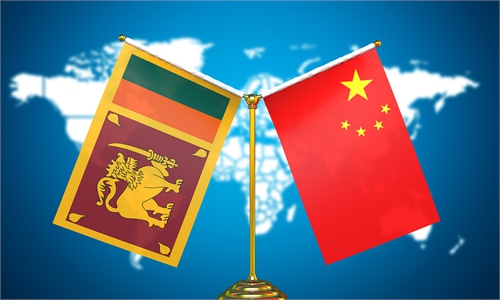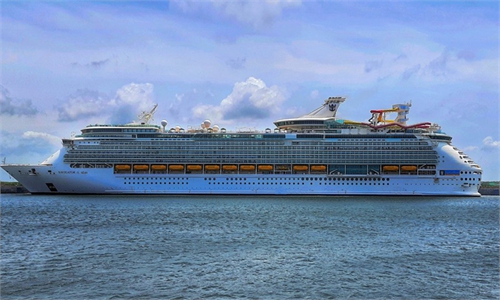
In these days, the focus of the Chinese and foreign media has been on US House Speaker Nancy Pelosi's visit to Taiwan and the events triggered by it. Many people have noticed that India, which belongs to Quad with the US, Japan, and Australia together, has been silent on this issue, although many netizens in India have asked the Indian government to revise its previous policy toward Taiwan.
The reason that the Indian government has remained silent is mainly because at present China-India relations are still at a low point, India does not want to offend China on the most sensitive Taiwan question that involves China's core interests by standing at the forefront of international anti-China forces together with the US, Japan and Australia. Furthermore, it wishes to "sit on top of the mountain to watch the tigers fight." India wishes the US, Japan and other countries could contain China, so that China's preoccupation is limited to the East China Sea, the Taiwan Straits and the South China Sea, reducing its attention toward the Indian Ocean. India would take this opportunity to strengthen its maritime power and consolidate its advantages in South Asia and the Indian Ocean region.
In the past two days, when China was concentrating on conducting military exercises in the Taiwan Straits and adjacent waters to deter "Taiwan independence" forces and their international supporters, unpleasant news came from the Indian Ocean. The Chinese "Yuan Wang 5" scientific research vessel, which was originally scheduled to dock at Hambantota port, Sri Lanka, for refueling and replenishment, was asked by the Sri Lankan government to indefinitely postpone the arrangement under the pressure of India. The reason put forward by the Indian side is that the berthing of a Chinese scientific research ship at Hambantota port has a bearing on India's security and economic interests.
However, as we all know, Sri Lanka is an important transportation hub in the Indian Ocean. Many scientific research ships, including China's, stop at Sri Lanka's ports for replenishment. Chinese scientific research vessels have always exercised freedom of navigation on the high seas and fully respected the jurisdiction of coastal states over scientific research activities in the waters under their jurisdiction. "Yuan Wang 5" docked at Hambantota port with the prior approval of the Sri Lankan government. Therefore, the so-called security concerns of the Indian government are very puzzling. On Monday afternoon, I was invited to talk with Indian Ambassador to China Pradeep Kumar Rawat. I asked him in person what India's so-called security concerns were about "Yuan Wang 5." Ambassador Rawat avoided answering it.
From the operation of the Indian side in pressuring the Sri Lankan government to stop the Chinese scientific research ship docking at Hambantota port, it can be found what the Indian side is seeking is not just to stop the ship from berthing at Hambantota port, but there is likely a bigger plot behind it. The docking has long been approved by the government of Gotabaya Rajapaksa, and India has not made any comments. It was not until the US released the news that the Pentagon was making plans for various situations during Pelosi's visit to Taiwan that a spokesman of the Indian External Ministry made a strong speech on July 28, saying that "the Indian government will carefully monitor any developments related to India's security and economic interests and take all necessary measures to protect them." It's a public threat to Sri Lanka.
Of course, there should be more hidden operations behind such public threats. Sri Lanka is currently in an economic and political crisis. It needs to get rid of the crisis and borrow money from India. In addition, for the Ranil Wickremesinghe government, the most urgent task is to stabilize the political situation. Whether the political situation in Sri Lanka is stable or not depends to a large extent on whether there is interference by major powers.
Historically, India's interference in Sri Lanka's internal affairs has always existed. The last well-known case was the 2015 general election, in which Mahinda Rajapaksa lost the election overnight. The Indian intelligence agency allegedly played a very negative role in the process. At present, the biggest challenge to the stability of the political situation of the Wickremesinghe government comes from Samagi Jana Balawegaya led by Sajith Premadasa. India can decide whether or not it supports Premadasa as a bargaining chip to pressure Wickremesinghe and force him to make concessions to India on the issue of the Chinese scientific research vessel berthing at Hambantota port.
In order to divert attention from interfering in Sri Lanka's internal and foreign affairs and prove its legitimacy to the international community, the Indian government has made a big fuss in public opinion. Through its English media, it has rumored to the world that the "Yuan Wang 5" scientific research ship, which is subordinate to PLA strategic support force and mainly provides services for China's aerospace launch, is a "spy ship." The Indians propagandize that the ship is very likely to be equipped with high-tech eavesdropping equipment in order to penetrate into Indian territory, portraying the Chinese scientific research ship as a spy ship like the ubiquitous US Navy investigation and technology ship.
India's opposition to the docking of "Yuan Wang 5" at Sri Lanka's port is almost the same as, or even more domineering than, India's past actions of treating the Indian Ocean as "India's Ocean" and opposing Chinese warships from visiting the Indian Ocean and docking at Sri Lanka's ports. India regards Sri Lanka as part of its sphere of influence and has been striving to bring Sri Lanka under its political, economic and security umbrella through its "Neighborhood First" policy and maritime security agreements.
At the beginning of the crisis in Sri Lanka, some Indian experts suggested India use the chance to clear China's influence from Sri Lanka. If India succeeds this time, it will set a dangerous precedent. India hopes to shape the geopolitics and geo-economy of South Asia in accordance with the needs of its national interests and turn South Asia and the Indian Ocean into India's sphere of influence and exclusive economic zone with the help of the US Indo-Pacific Economic Framework and the Indo Pacific Strategy.
The Sri Lankan people abhor India's interference in Sri Lanka's internal and foreign affairs. It is worth noting that during the anti-government protests in Sri Lanka in July, the protesters shouted slogans against not only former president Rajapaksa and his family, but also India. Slogans like - "Don't sell the country to India and the US"; "India: Sri Lanka is not another state"; and "India don't exploit Sri Lanka's situation" - could be widely heard during the demonstrations. For strategic reasons, India has provided huge assistance to Sri Lanka in the crisis, and some Indians believe that Sri Lankans' views on India have changed due to India's help. However, any interference by India in Sri Lanka's internal and foreign affairs will make the Sri Lankan people re-recognize India's hegemonic ambitions toward their country.
The author is secretary-general of the Research Center for China-South Asia Cooperation at Shanghai Institutes for International Studies, a visiting fellow of the Chongyang Institute for Financial Studies, Renmin University of China, and a distinguished fellow of the China (Kunming) South Asia & Southeast Asia Institute. opinion@globaltimes.com.cn


